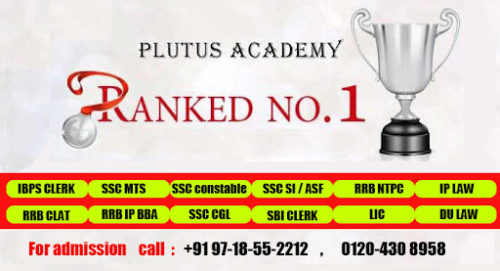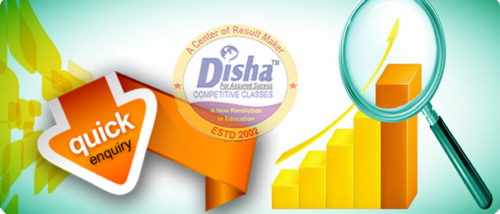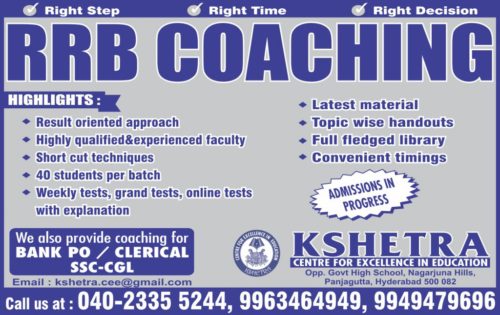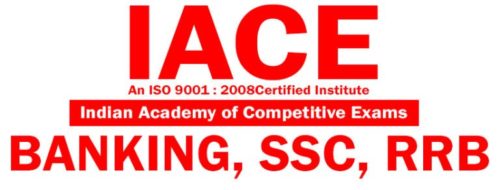Synopsis: Getting a job in the Indian Railways category is quite a difficult task. The following article is a guidance to aspiring individuals looking to secure a job in the railways.
It is considered that the railway's department job is the safest among all the categories of government Jobs but only a few lucky to job sector. Every year there are tons of candidates who try their luck with the railway department jobs ones pass the barrier. With the railways' department, any country is having a rapid growth and development from economic aspects. This particular department serves millions of people on a daily basis and working for it is an honorable thing. Besides, it is fully aided by the respective government so in that case, it offers job security and stability along with the added pension for the lifetime and granted holidays. The work is also quite substantial with fixed hours for every employee.
However, the demand for railway jobs is much higher than the number of seats due to the high paying salary and job consistency. Starting from health care benefits to travel allowance, it is quite a lucrative position to all the ambitious students of the country. Here are some of the helpful tips on how to get a job in Indian Railways -
1. Mark the eligibility criteria - Before taking any examination for any position, one should also notice the eligibility criteria.
- Determine the educational criteria first such as a Bachelor’s degree from a university.
- Working at the right age is also very important because railway jobs demand a certain age group of employees.
2. Training Preparation - One must always be trained for the railway examination. Proper preparation will lead you to success. Guidance from coaching institutes to succeed in these exams is very helpful in this case. Some people also opt for self-study methods.
3. Proper resources- Prior to the examination, solving test papers are very important to gain a certain idea about the actual thing. Online study resources, practice tests and study materials from other reliable sources are very important as well. (See: Top 10 Brands for help)
4. Opportunities for recruitment- It is also important to find the right source for recruitment. Proper information at the proper time is important. You can do them by -
- Getting daily job alert subscription
- Stay updated on newspaper information
5. Confidence- For many candidates, the first attempt is not the lucky one. They try repeatedly before achieving the desired score. So, if you fail to crack it the first time, you can get success in the later attempts. Always be confident and do not lose any hope in your dream job.
Marking the eligibility criteria
As we mentioned above, that we will share the Eligibility Criteria for Popular category of posts. Once the Railways announce the Official Notification in 2019, we will share the Eligibility criteria of all those posts advertised on this page.
As, you know that, RRB’s recruits people for Group C and Group D Posts . The Recruitment for Group A posts is done by UPSC and the Recruitment for Group B posts are through promoting the recruits of Group “C”
Popular Group “C” and Group “D” posts & Eligibility
- Post : Jr Engineer & DMS - Age Limit: 18 years to 33 years as on 1-1-2019 | Educational Qualifications: For Jr. Engineer post applicant have 3 years Diploma or Degree in respective Engineering Discipline Or Equivalent.
- Post : Jr Engineer IT - Age Limit: 18 years to 33 years as on 1-1-2019 | Educational Qualifications: For Jr. Engineer (IT) post applicant have PGDCA/ BSC/ BCA/ B.tech/ btech/ DOEACC “B” Level course of 3 years duration Or Equivalent.
- Post: Sr. Section Engineer - Age Limit: 20 years to 35 years | Educational Qualifications: For Sr. Section Engineer post applicant have completed 4 years Bachelor’s Degree in Engineering in respective discipline from a recognized University of India
- Post: Assistant Loco Pilot - Age Limit: 18 years to 30 years | Educational Qualifications: Applicant must be minimum Matriculate (10th Pass) along with Course completed in ITI in various trades.
- Post: Technician - Age Limit: 18 years to 30 years | Educational Qualifications: For the post of Technician, applicant must be either Matriculate with ITI OR 10+2 with Physics and Math OR 3 year Engineering Diploma in respective discipline. Note: Majority of Technician posts, the qualification is Matric or SSC with IT in the specific trade.
- Post: Jr.Clerk cum Typist, Account Clerk cum Typist. - Age Limit: 18 years to 29 years | Educational Qualifications: Applicant must have passed the 12th Class, along with Typing Speed of 30 WPM in English and 25 WPM in Hindi
- Post: Ticket Examiner, Trains Clerk, Commercial Clerk - Age Limit: 18 years to 29 year | Educational Qualifications: Applicant must have passed the 12th Class in any discipline OR Equivalent.
- Post: Stenographer, Jr. stenographer - Age Limit: 18 to 30 years | Educational Qualifications: Matriculation, along with speed of 80 WPM in shorthand
- Post: Publicity Inspector - Age Limit: 18 to 33 years | Educational Qualifications: Applicant must be a Graduate, along with Diploma in Public Relations, Advertising, Journalism, Mass Communication from a recognized university.
- Post: Sr. Publicity Inspector - Age Limit: 18 to 33 years | Educational Qualifications: Applicant must be a Graduate, along with Diploma in Public Relations, Advertising, Journalism, Mass Communication from a recognised university. Applicant must have 2 years Experience in relevant field.
Visit the link to keep yourselves up to date towards any changes in the Eligibility criteria's - https://rrbonlinegov.in/railway-eligibility-criteria/ (Source: Indian Railways Recruitment Board)
Training Preparation
Candidates planning to appear for this exam must go through the detailed RRB notification before they start their RRB preparation. The recruitment notification, among other things, will give you information about the various posts that come under RRB NTPC.
Some of the posts that come under RRB are Commercial Apprentice, Line Man, Senior Time Keeper, Assistant Station Master, Loco Pilot, Senior Clerk cum Typist, Goods Guard, etc.
The exam pattern varies from post to post. Aspirants must have a clear idea about the exam pattern because their RRB preparation will depend on that.
The various stages of Railways exam are as under:
- RRB NTPC Prelims - Computer Based Test
- RRB NTPC Mains - Computer Based Test
- Typing Test - for the post of Junior Accounts Assistant cum Typist, Senior Clerk cum Typist, and Senior Time Keeper
- RRB NTPC Aptitude Test - for the post of Traffic Assistant and Assistant Station Master
- Document Verification
- Medical Fitness Test
- Final Selection
The RRB NTPC exam pattern for Prelims and Mains is the same for all posts. Both Prelims and Mains have the same four sections as under. The number of questions and marking scheme are different for Prelims and Mains.
- General Science
- General Awareness
- Reasoning
- Arithmetic
Let us now see how to prepare for each of these sections.
Preparation For General Science
The General Science section contains questions from basic science – Physics, Chemistry, and Biology. In order to prepare for this section, brush up the Science textbooks of high school level (Class 9 and 10). You can refer to the NCERT textbooks of the respective subjects for this purpose. Make sure you have a clear understanding of all the concepts and topics. Having a good level of conceptual knowledge of the subjects itself will fetch you good marks. Also, the various formulas, reactions, equations, reactions, and other details should be at your fingertips. Practice questions for every chapter to see how well you have understood and memorized the concepts in that chapter.
Preparation For General Awareness
Questions in this section are related to the current affairs of national and international importance. Your General Knowledge too is tested here. This section needs one to go through NCERT History, Geography, Civics, and Political Science books. Having knowledge of Indian Laws and Constitution, History (especially, modern and medieval history of India), Polity, Parliament, Economy, Budget (especially Railway Budget), etc. can fetch you a good score in this section.
Apart from these, read newspapers and magazines of current affairs on a daily basis. Focus more on pages related to Business, Economy, Polity, Science and Technology, and Sports. As this section needs one to remember a lot of information, daily study and revision is a must. Allocate at least an hour daily for this purpose.
Refer to one of the latest Yearbooks from any reputed publication as well. Information about Books and Authors, Countries Capitals and Currencies, Awards, Honours and Recognition, etc. should be at your fingertips.
Preparation For Reasoning
If you have never prepared for any competitive exam, this section might be new for you. But with proper knowledge of the theories and sufficient practice, you will be able to master each and every topic in this section.
Start off with easy topics like Classification, Number and Alphabet Series, Analogy, Distance and Directions, Blood Relations, etc. These topics need common sense and can be easily mastered. However, the more you practice the faster you will be able to solve questions from them.
Once you feel confident about these topics, move on to more difficult topics, like Syllogism, Statements & Conclusions, Statements & Assumptions, Puzzles, Seating Arrangements, etc. which need one to understand the underlying theory first and then a lot of practice.
Try to understand the steps involved in solving a particular kind of problems instead of trying to learn shortcuts directly. With practice, your problem-solving abilities will improve and you will discover various shortcuts yourself. This will help you in better retention. Also, cultivate the habit of making diagrams as you practice.
Preparation For Arithmetic
This section again contains questions of high school-level Mathematics. Most of the topics included here need the application of formulas to solve. However, the calculations might be tricky at times. What you need to master this section is sufficient practice. Also, the theory behind each of the concepts should be understood. Otherwise, you might get confused at times and not be able to identify the concepts tested in a particular question.
Start off with easy chapters like Percentage, Ratios & Proportion, Average, Profit & Loss, Simple & Compound Interest, etc. which are absolutely formula-based. Make sure all the formulas are at your fingertips. Slowly, move on to difficult topics like Problems on Ages, Boats & Cisterns, Mixtures & Alligations, Time, Distance & Speed, Time & Work, etc. which, along with the application of formulas, need a logical and analytical approach to solve.
Remember that this section is all about practice. Just memorizing the formulas won’t be enough. Here too, you shouldn’t try to learn the tricks or shortcuts directly.
General Tips for Preparation - Some general tips for RRB preparation are tabulated below:
- Understand the theory behind every single concept.
- Practice enough number of questions for every topic.
- Develop reading habits.
- Keep formulas, steps to solve problems, etc. at your fingertips. Practice and revise them regularly.
- Solve questions in a time-bound manner. Time management is very important.
- As you prepare, work on to maintain a balance between speed and accuracy.
- Revise regularly, not just the topics you feel you are weak at but also the ones which you are absolutely confident about.
- Take RRB mock test or any other mock test (for any government job) as the syllabus is more or less same.
- Analyze your performance in the test and identify your weaknesses and mistakes. Work on them.
Sources - Indian Railways: https://indianrailwayemployee.com/content/rates-stipend-apprentices-and-trainees-railways-fresh-recruitment-rrb-or-other-modes https://rrbonlinegov.in/railway-eligibility-criteria


















Leave a Reply